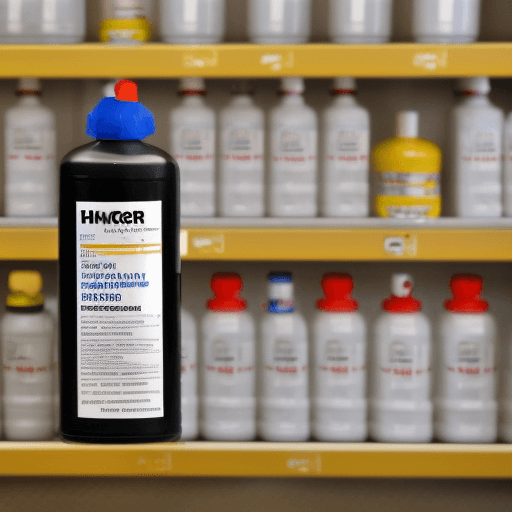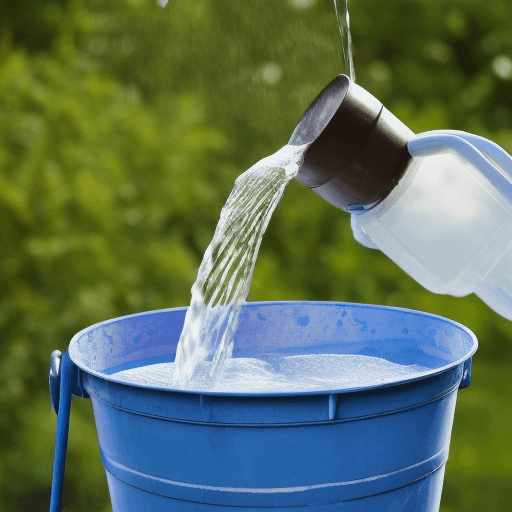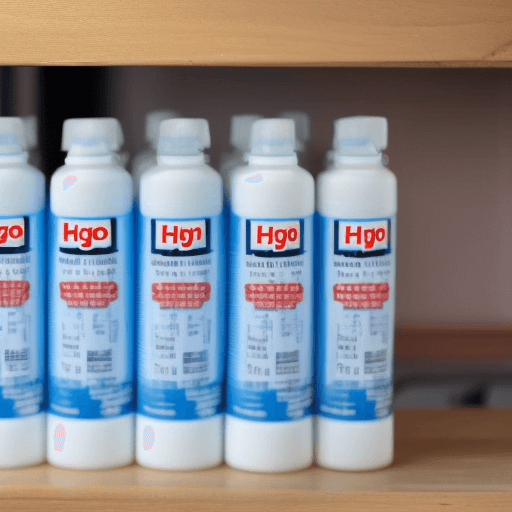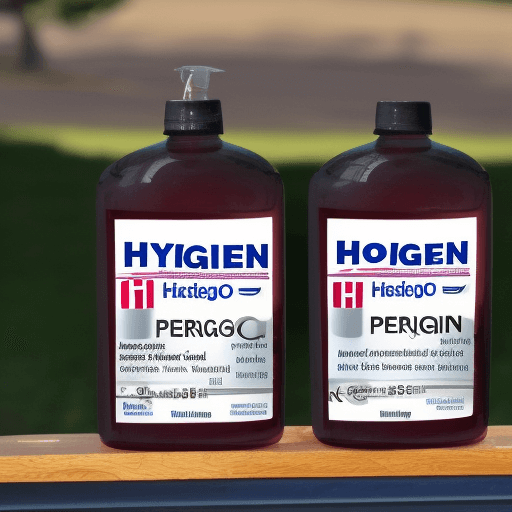Hydrogen peroxide is a common household item that is used for many purposes.
But does hydrogen peroxide expire?
And if it does, how long will it be effective?
Let’s review and also provide some tips on how to store hydrogen peroxide properly.
Hydrogen peroxide has a shelf life of about three years when stored in sealed containers at room temperature, although some manufacturers may indicate a longer shelf life for their specific product.

The actual expiration date can vary based on the manufacturing process used, so it’s important to check the manufacturer’s guidelines or expiration date on the label before using any hydrogen peroxide solution.
Does hydrogen peroxide expire?
Hydrogen Peroxide Expiration Date
The answer is yes, it does. Hydrogen peroxide is a compound known for its oxidizing properties, so clearly an element that can oxidize will eventually break down with enough exposure to light or oxygen over time.
A good rule of thumb when considering storing hydrogen peroxide is that the higher the concentration of hydrogen peroxide, the fewer expiration date it has.
That being said, some manufacturers offer products containing up to 30% hydrogen peroxide and claim a shelf life of up to three years.
However, for minor concentrations generally used for cleaning there may not be any indication of their expiration date because it doesn’t have one.
A general consensus from experts says that lower concentrations (3-6%) will only last a few months before expiring.
So if you are wondering ‘Does hydrogen peroxide expire?’ the answer is yes, but it all depends on the concentration and how you store it!
How long does hydrogen peroxide last?
How long does hydrogen peroxide last?
It depends on the type of hydrogen peroxide and its environmental conditions, ranging from one to three years.

Pure hydrogen peroxide has a shelf life of three years if stored with care away from the heat in a cool, dark place.
On the other hand, depending upon local regulations and laws, a 3% solution generally lasts for one year when sealed at room temperature away from light.
A key factor influencing the lifespan of hydrogen peroxide is how it is stored.
The product should be kept in a sealed container and not left open any longer than necessary.
It is always best to check the expiration date on the bottle to ensure maximum potency.
How to extend hydrogen peroxide shelf life?
Hydrogen peroxide is a popular household cleaner due to its disinfectant properties, but did you know that there are ways to extend its shelf life?

In order to keep hydrogen peroxide at peak performance for a longer period of time, the key is to store it in an airtight container, away from light and heat.
Regularly replacing the bottle with a fresh one can also ensure that your hydrogen peroxide lasts as long as possible.
Keeping the lid of your hydrogen peroxide tightly closed to keep air out is also essential, as it’s important for the chemical reaction that produces its cleaning properties.
With just a few extra steps you’ll have a household cleaner that outlasts its shelf life!
Testing peroxide to see if it’s still good

To get the most use out of your hydrogen peroxide and maximize its shelf life, it is important to test it in order to see if it’s still good.
The best way to do this is by pouring a teaspoonful of peroxide into a basin of warm water if you see a lot of bubbles and fizzing, then it’s still good and can be used as desired.
If there’s no reaction after 10 minutes or so, then the hydrogen peroxide has gone bad and should not be used.
Additionally, try to keep the peroxide in a cool, dark place with the lid secured tightly, as this will help prevent oxidation that could run down quality.
With these tips on hand, you’ll be able to ensure you always have fresh, usable peroxide around for whatever needs arise!
Factors that affect the peroxide shelf life
Factors that affect the peroxide shelf life include storage conditions, exposure to light and oxygen, and levels of catalyst present in the solution.
- Storage temperatures below 35 degrees Fahrenheit can help increase the shelf life, while warmer temperatures can cause peroxides to break down rapidly.
- Exposure to light or air will cause peroxide solutions to degrade quickly, so they should always be stored away from light sources in an airtight container.
- Lastly, higher concentrations of catalysts can accelerate the decomposition rate of peroxides, meaning less time for them to remain on a shelf.
All of these factors are important indicators of how long a bottle of peroxide will last and should play a role when determining whether it is safe to use after some time has passed.
What happens to expired hydrogen peroxide?
When hydrogen peroxide expires, its oxidizing ability deteriorates and can no longer be used as an effective disinfectant or bleaching agent.
Over time, the chemical formula of expired hydrogen peroxide begins to break down, forming oxygen gas and water which will cause it to become foamy and bubbly.
The expiration date serves as a good guide and is based on a study conducted by the manufacturer on its combination with other chemicals.
Explain it to a child
Hydrogen peroxide will last for about three years when stored in a container that is not opened and kept at room temperature, although some manufacturers may say that their product will last longer.
It’s important to note that there are various forms of hydrogen peroxide available, such as food grade H2O2 and 3% technical grade H2O2 each form has a different shelf-life even though all forms are unstable chemical compounds.
Although the amount of time until a bottle of hydrogen peroxide expires may vary depending on the chemical composition of the formulation, it’s best to think of 3% technical grade H2O2 as having an approximate shelf life of 6 months while food grade H2O2 should have a shelf-life of over one year.
How do you know if hydrogen peroxide is expired?
How do you know if hydrogen peroxide is expired?
To determine if your hydrogen peroxide is expired and no longer effective, you need to pay close attention to a few indicators.
- One big sign is discoloration – typically fading to a yellow or orange color.
- Another indicator is an increase in odor or bubbles when the bottle is opened.
- Finally, an expiration date should also be on the bottle – although this one can be tricky because hydrogen peroxide usually doesn’t expire until three years after being opened.
If any of these signs apply to your hydrogen peroxide, it may be best to throw it out and purchase a new bottle for safety purposes.
How long is hydrogen peroxide good for after the expiration date?
How long is hydrogen peroxide good for after the expiration date?
The hydrogen peroxide that remains effective can depend on numerous factors such as sunlight exposure and if the container is opened or not before use.
Generally speaking, unless otherwise specified by the product manufacturer, expired hydrogen peroxide is still usable for about two to three years beyond its expiration date.
Be sure to store non-opened containers of hydrogen peroxide in a cool, dark place away from direct sunlight or heat sources; this will help increase its shelf life.
In conclusion, hydrogen peroxide does expire.
The expiration date is important because it is an indicator of when the chemical will start to break down and become less effective.
After the expiration date, you should still be able to use the hydrogen peroxide for certain things, but it may not work as well as before.
Article Sources
Jacks of Science sources the most authoritative, trustworthy, and highly recognized institutions for our article research. Learn more about our Editorial Teams process and diligence in verifying the accuracy of every article we publish.
